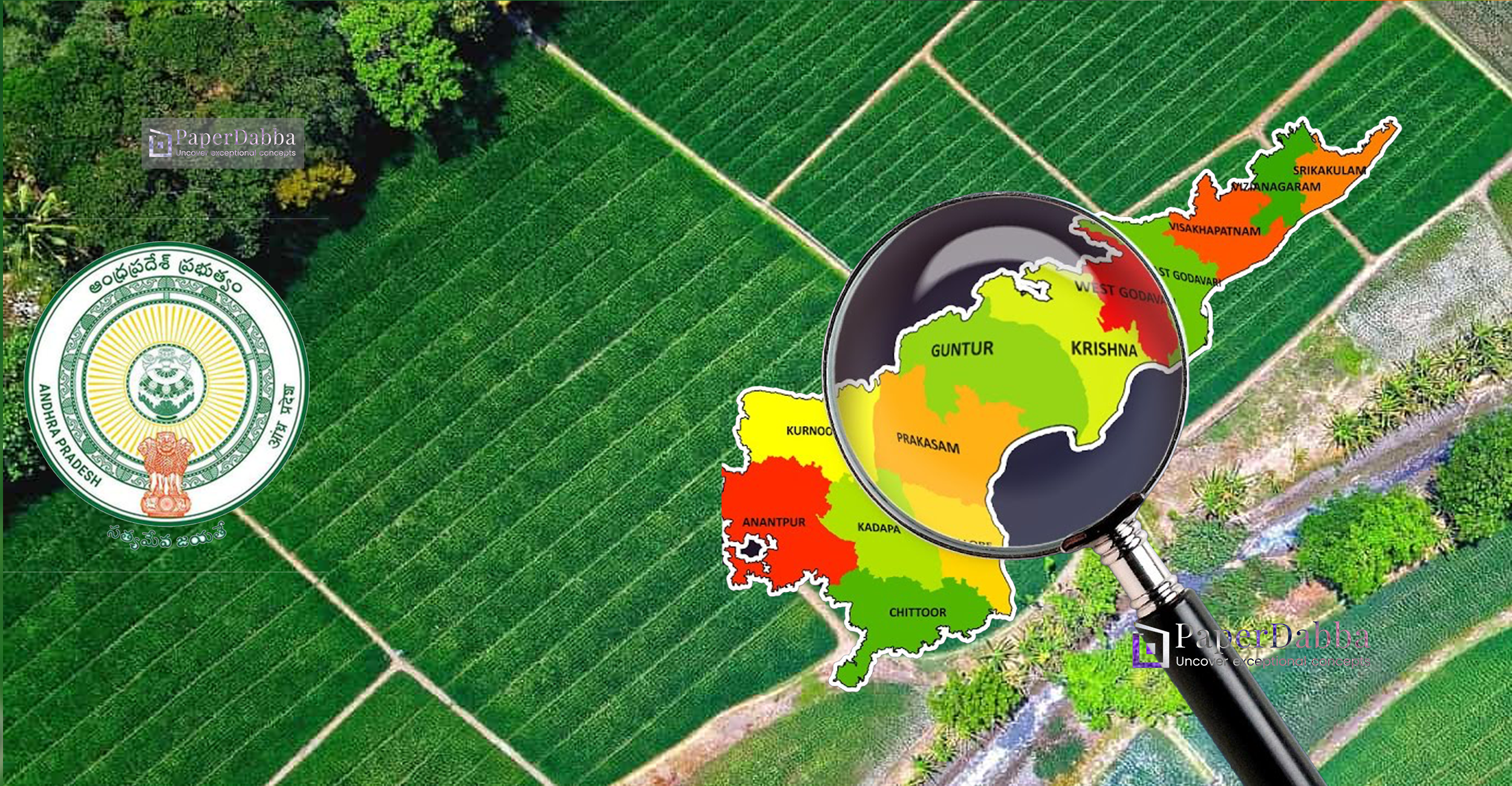The Andhra Pradesh Land Titling Act (2023) has sparked significant controversy and opposition from various quarters, including members of the NDA and the general populace of Andhra Pradesh. This article delves into the key issues and concerns that have led to widespread resistance against its implementation.
1. Lack of Standardization
One of the primary concerns is the lack of standardization associated with a state-specific land titling system. The Andhra Pradesh Land Titling Act creates a framework unique to the state, leading to inconsistencies in land titling practices across India. This lack of uniformity complicates inter-state land transactions and creates legal ambiguities.
Example:
A farmer in Andhra Pradesh attempting to purchase land in Tamil Nadu may face significant legal hurdles due to differing land titling systems. This inconsistency can lead to delays and additional costs, making land transactions across state borders cumbersome and inefficient.
2. Resource Intensity
Implementing the Andhra Pradesh Land Titling Act requires substantial financial and administrative resources. Surveying, documenting, and digitizing land records across the state is time-consuming and expensive. This strain on resources could lead to incomplete coverage or delays, impacting the Act’s effectiveness.
Example:
In Andhra Pradesh’s vast rural areas, the costs associated with comprehensive land surveys and the creation of digital records can be prohibitive. Limited state budgets may force prioritization of certain regions over others, leaving some areas inadequately covered.
3. Risk of Local Misuse
The potential for local misuse of the Act is a significant concern. Regional power dynamics and corruption can influence the implementation and enforcement of the Act, leading to biased allocation of land titles and manipulation of land records.
Influence of Local Politicians and Powerful Entities:
- Land Grabbing: Local politicians or influential individuals might manipulate land records to acquire land unjustly.
- Example: A local politician may bribe officials to alter records, claiming ownership of valuable agricultural land and displacing rightful owners.
- Corruption: Corruption at various levels of government could result in biased land title allocations.
- Example: Influential people in business might pay officials to prioritize their land title applications, disadvantaging poorer farmers.
Biased Enforcement:
- Selective Implementation: Authorities may enforce the Act selectively, favouring specific individuals or groups.
- Example: Families with political connections receive prompt land titles, while low-income families face bureaucratic delays.
- Intimidation and Coercion: Farmers might be coerced into giving up land under unfavourable terms.
- Example: Powerful landowners use threats to force small farmers to sell land at below-market prices.
4. Implementation Challenges
The diverse land ownership structures and geographic regions in Andhra Pradesh present significant implementation challenges. A uniform land titling system might not address the unique needs of different areas, leading to inefficiencies and errors.
Example:
Coastal areas, forested regions, and urban centres in Andhra Pradesh all have unique land management challenges. A one-size-fits-all approach might not effectively address these diverse needs, resulting in suboptimal land titling.
5. Limited Scope for Innovation
Being a state-specific Act, Andhra Pradesh may miss out on innovative practices and technologies recommended at the national level. This limitation could hinder the efficiency and accuracy of the land titling process.
Example:
NITI Aayog’s model might include advanced technologies like blockchain for tamper-proof land records. Andhra Pradesh’s Act might lag in adopting such innovations due to a lack of exposure or resources.
6. Public Access and Transparency
While the Act mandates public access to land records, implementation can vary, affecting transparency. Variations in public access can lead to information asymmetry and reduced trust in the land titling system.
Example:
In rural areas with poor internet connectivity, local power brokers might control access to digital land records, creating an information disparity that disadvantages less powerful landowners.
7. Inequitable Access to Resources
Resource allocation for implementing the Act may not be equitable, leading to disparities in land titling. Wealthier districts might receive more resources, leaving poorer, remote areas inadequately supported.
Example:
In a tribal region, inadequate funding for land surveys might result in incomplete or inaccurate land titling, leaving Indigenous communities vulnerable to land disputes and exploitation.
8. Manipulation of Dispute Resolution Mechanisms
Powerful local actors may manipulate dispute resolution mechanisms to their advantage, leading to biased rulings and unfair settlements.
Example:
A wealthy landowner might bribe a local judge to rule in their favour in a land dispute with a small farmer, disregarding the latter’s rightful claim.
9. Marginalization of Vulnerable Groups
Vulnerable groups, such as indigenous communities, women, and economically disadvantaged individuals, might be systematically excluded from the land titling process.
Example:
Indigenous communities may lack formal documentation of their ancestral lands, making it challenging to secure titles. Local authorities might not provide adequate outreach, excluding them from the Act’s benefits.
The Andhra Pradesh Land Titling Act (2023) faces significant opposition due to various concerns, including lack of standardization, resource intensity, risk of local misuse, implementation challenges, limited scope for innovation, and potential issues with transparency and public access. Additionally, the risk of inequitable resource allocation, manipulation of dispute resolution mechanisms, and marginalization of vulnerable groups further exacerbates these issues.
Despite the significant opposition from YS Jagan and his followers, who argue against the cancellation of the Land Titling Act, it is essential to recognize the underlying intentions behind these claims. Critics suggest that these objections might be driven by false intentions, potentially aimed at maintaining the status quo that benefits the powerful.
In contrast, the decision by CBN (Chandrababu Naidu) to cancel the Act appears to be motivated by a genuine concern for the underprivileged and marginalized communities in Andhra Pradesh. By addressing the flaws and potential misuse of the Act, CBN’s government aims to create a more equitable and transparent land titling system that truly serves the interests of all citizens, especially those who are most vulnerable. This approach underscores a commitment to fairness and justice, ensuring that land resources are managed effectively and inclusively.









